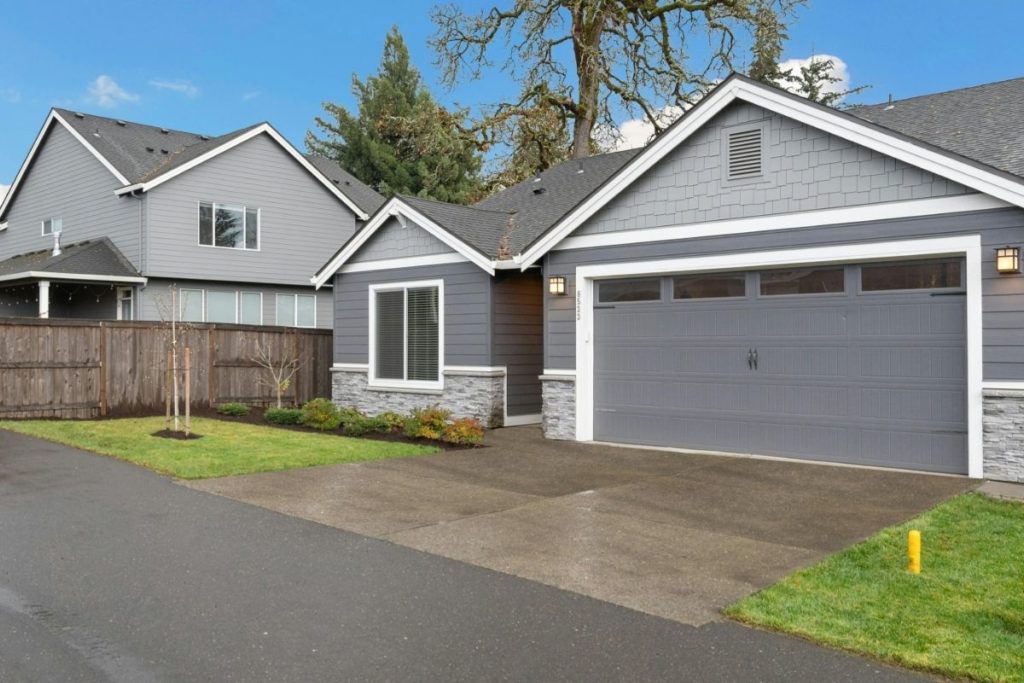When choosing the right material for their driveway, homeowners often choose between asphalt and concrete. Both materials have benefits and drawbacks, but the cost is the most significant for most people. The debate over which material is more cost-effective continues, with considerations like installation costs, maintenance, lifespan, and climate resilience playing a significant role. This guide analyzes installation, maintenance, lifespan, and climate resilience to help you answer the question: Are asphalt driveways more cost-effective than concrete in the long run?
Upfront Costs: Asphalt vs. Concrete
One of the biggest reasons homeowners lean toward asphalt is its affordability. On average, the cost to install an asphalt driveway ranges from $3 to $7 per square foot, making it one of the most budget-friendly options. Conversely, concrete is more expensive, costing between $5 and $12 per square foot. The price difference is due to the materials used, the labor required, and the time it takes to install each surface. This price variation is tied to the different asphalt types and uses.
Asphalt driveways can typically be laid in a day or two, while concrete takes longer to cure properly, sometimes up to a week. Asphalt is the better choice if you’re looking for a quick and cost-efficient installation. However, if you’re planning for the long haul, it’s essential to consider more than just the initial cost.
Durability and Lifespan
A driveway isn’t just a one-time investment; it must hold up over time. Concrete driveways tend to last longer, with a 30 to 40-year lifespan, while asphalt driveways usually last 20 to 30 years. Although concrete offers greater longevity, asphalt is more flexible and better suited for areas with extreme temperature fluctuations.
Cracking is a common issue with both materials, but they respond differently. Asphalt cracks are easier and less expensive, while concrete cracks often require more extensive (and costly) repairs. Asphalt may be a better choice in a climate with freeze-thaw cycles because it can expand and contract without suffering as much damage.
Maintenance and Long-Term Costs
Regular maintenance is a critical factor in determining cost-effectiveness. While concrete driveways require minimal maintenance, repairs can be costly when issues arise. Concrete is also more susceptible to damage from de-icing salts in colder climates, which can lead to surface deterioration over time.
Conversely, asphalt requires sealing every 3 to 5 years to maintain its integrity and prevent cracks from spreading. While sealcoating asphalt adds to maintenance costs, it also helps extend the driveway’s lifespan. Fortunately, asphalt repairs are much more affordable, typically costing between $1 and $3 per square foot, while major concrete maintenance can range from $6 to $15 per square foot.
Weather and Climate Considerations
Where you live plays a significant role in deciding whether asphalt or concrete is the more cost-effective option. Asphalt driveways perform better in colder climates because they can withstand freezing temperatures without cracking as easily as concrete. However, asphalt can soften and become sticky in hot climates, leading to deformations.
Concrete, on the other hand, handles heat well and remains structurally sound even in extreme temperatures. However, in areas where winter conditions are harsh, concrete driveways can develop cracks due to repeated freeze-thaw cycles. Asphalt may be a better investment if you live in a northern climate, while homeowners in warmer regions might find concrete more cost-effective in the long run.
Aesthetic Appeal and Property Value
For many homeowners, a driveway is more than just a functional space; it also affects curb appeal. Concrete driveways offer more design versatility, as they can be stamped, stained, or textured to match the look of your home. While asphalt is generally limited to a black finish, newer sealants and decorative techniques allow for some customization.
Regarding property value, a well-maintained driveway of either material can improve a home’s resale price. However, since concrete driveways tend to last longer and offer more aesthetic options, they may have a slight edge in boosting home value.
Environmental Impact and Sustainability
Sustainability is another important consideration. Asphalt is now being produced with higher percentages of recycled materials, making it a more environmentally friendly option than in the past. Asphalt can be processed and reused at the end of its lifespan, minimizing waste. The benefits of asphalt recycling extend beyond environmental advantages.
Concrete, while durable, has a higher environmental impact due to the carbon-intensive cement production process. However, new advancements in eco-friendly concrete mixes are improving their sustainability. If ecological concerns factor into your decision, asphalt may currently be the greener choice, but concrete innovations are closing the gap.
Final Verdict: Are Asphalt Driveways More Cost-Effective Than Concrete in 2025?

So, are asphalt driveways more cost-effective than concrete in 2025? The answer depends on your budget, climate, and long-term maintenance considerations. Choosing between asphalt and concrete depends on personal preference and financial priorities. If you plan to stay in your home for decades, investing in concrete may be worth the higher initial cost. But if you’re looking for a budget-friendly, easily repairable option, asphalt remains the go-to choice for many homeowners.
Before deciding, it’s always a good idea to consult a professional contractor who can assess your specific needs and provide tailored recommendations based on your location and budget. If you are still unsure if asphalt or concrete is best for your property, contact Richfield Blacktop today.




